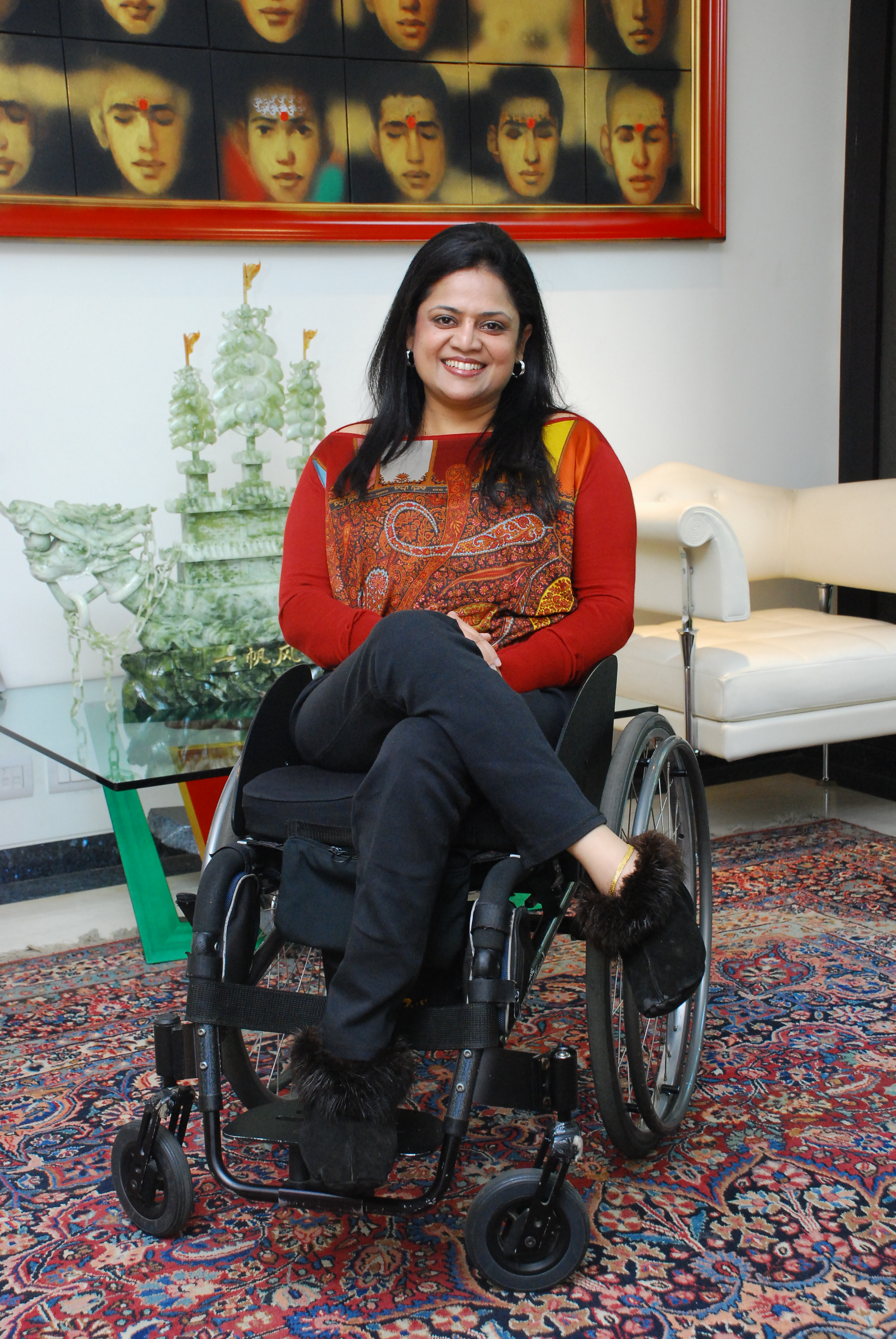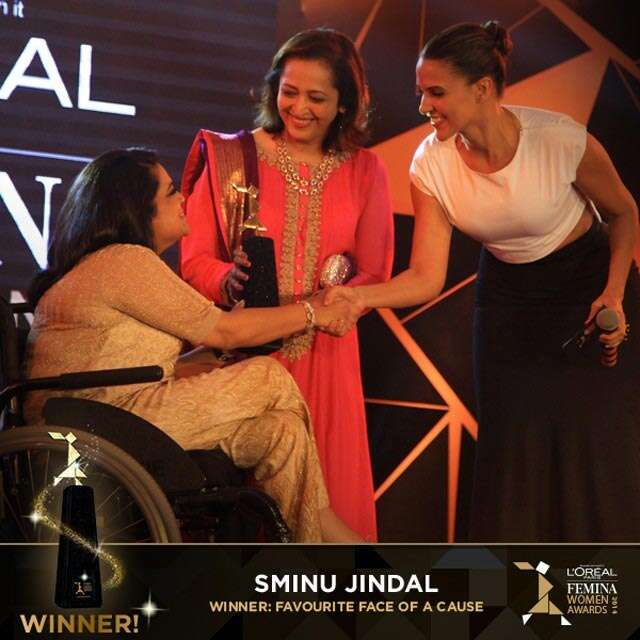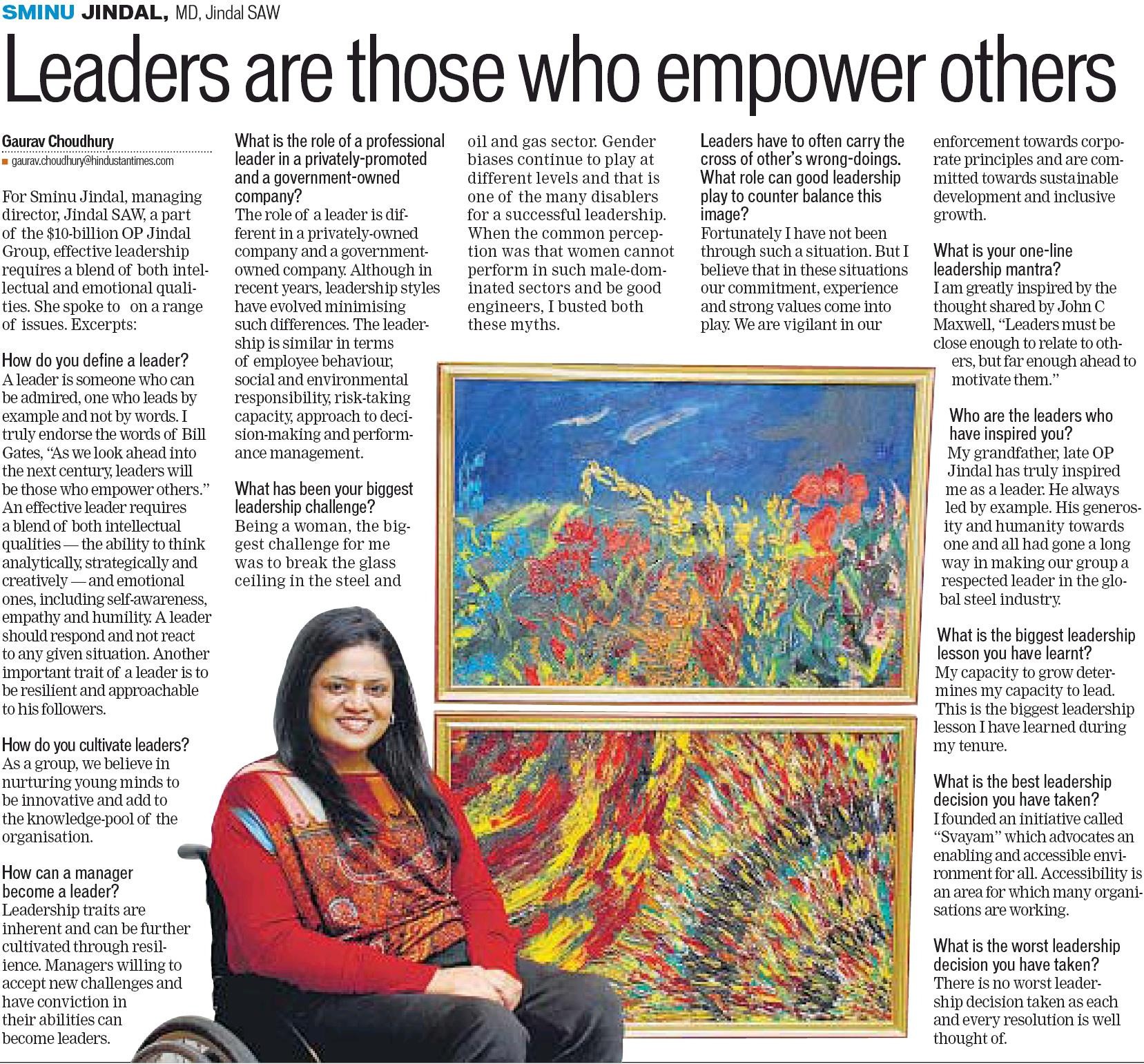Women at Work: The Woman of Steel
November 12, 2013, 9:00 AM

Sminu Jindal was in a car accident when she was 11-years-old that meant she has had to use a wheelchair ever since. This didn’t stop her continuing her education and graduating from New Delhi’s prestigious Shri Ram College of Commerce and going on to do a management program from Fore School of Management, at Delhi University.
In 1993, fresh out of college, Ms. Jindal then 22-years-old convinced her father O.P. Jindal to let her join his steel business. He set her the task of turning around a factory that was on the verge of closure, a mission which she successfully accomplished.
Today, Ms. Jindal, is the managing director of Jindal Saw Ltd., India’s biggest manufacturer of steel pipes, running a company with revenues of about $1 billion annually .
In the latest in our “Woman at Work” series, Ms. Jindal spoke to The Wall Street Journal about having to prove herself repeatedly, feeling dumb, and using her reduced mobility to her advantage.
Edited Excerpts:
The Wall Street Journal: What’s the steel industry like for a woman?
Sminu Jindal: It is a very macho industry. If I just put it in a one line, men are allowed to be macho, women are not given a chance but we can be equally macho. When people talk about steel they think women can’t lift steel, but men [at my level] don’t lift it either. We just manage people who lift it.
I honed by skills in the area I was good at, thankfully my family supported that. I concentrated on stuff that I liked the best.
I believe passion runs you. If you have a passion then you can learn a thing, but then if you don’t have a passion, or a flair for that thing, you will never learn no matter how many classes you attend. It will still be your weak point.
WSJ: What are the particular strengths you think women bring to your line of work that perhaps men lack?
Ms. Jindal: I feel we are born as mothers, so we are already preprogramed to nurture people beneath us, sometimes to be like a rough bad mom, which people don’t like. They’d rather have an easy going mom; disciplinarian mom and nurturing at the same time. I think that is one quality that a woman definitely brings on the table.
WSJ: When you first entered the industry in 1993 what was the attitude towards you as a woman? Has this changed now?
Ms. Jindal: I wish it would change now. People no longer say women can’t be in this industry, but women have to prove their capabilities again, and again, and again.
I think women also need to go through a change of mindset in about how we bring up our children. I have two boys; I hope I will do a good job.
WSJ: What have been the challenges for you in making it to the top?
Ms. Jindal: It is a macho business; everybody thought I would not be able to lift steel. I wasn’t able to lift steel, but I handle people well. That was my forte. I have my people happy working with me, they look forward to working with me, they draw inspiration when I am for hours in the plant and they feel as able-bodied they should be more diligently working. So in terms of motivation, I guess, I provide them tons.
WSJ: Does the Indian context affect the experience of women in your business?
Ms. Jindal: Indian or not, women are not encouraged to be on the shop floor. You still see women as mid-level managers…rarely as chief executives…but I am yet to come across five women engineers who work in a plant. That’s what I want as a positive change.
There is no job which a woman can’t do.
WSJ: Have you had to employ particular tactics to make it to this position? What would those be?
Ms. Jindal: I use my wheelchair as an opportunity to spread the message of accessibility. We just need to think and dream big…it happens. That’s something I have worked on and lived my life on, dreaming big that you will be there one day.
WSJ: At what stage do Indian women decide to stop working?
Ms. Jindal: Women do that because family pressures sometimes becomes too much. There is too much expectation at home due to which they are unable to concentrate on their careers. They take sabbaticals 10 years just to make sure that their kids are grown up enough for them to go out again and work. But it is not fair on them because they learn how to be a manager completely when they are at home. They are managing so many fronts with not a battery of people like we have at work.
WSJ: What mistakes do women often make at the workplace?
Ms. Jindal: They try to be super at everything. It’s okay to fail; it’s okay not to achieve this super status at work and super human at home; it’s okay. Don’t put so much pressure on yourself. That’s the biggest learning at the end of it all. It is more important to get up, dust yourself and move again. All the super human stuff, sometimes is self-imposed but it also comes from a lot of peer pressure. Its peer pressure that actually drives people to do certain things that is against their will.
WSJ: Tell us about your best and worst experience as a woman at work.
Ms. Jindal: The worst time is when, in spite of my successes, I have to prove again that I can do it. Pressure always remains. Trust me, sometimes I feel that I was 90% dumber than other people but as a man I would have still been considered a success. Honest. That is the worst feeling.
I believe my best was when I put up a good team that works towards the same objective, with the same synergy and no politics.
WSJ: What is the one thing would you change in India to make it easier for women to succeed?
Ms. Jindal: I want India to be more accessible. The biggest challenge that I face even today is accessibility. Something as tiny as that…traveling from one place to another. There would be so many like me out there if things were accessible for people to travel to places, catch a public transit, go to a place of recreation or work, and lead a happier life. That’s a challenge that I am currently trying to work, Svayam, [part of Sminu Jindal Charitable Trust a New Delhi-based nonprofit working to promote dignity for people with reduced mobility] being one of them.
Source: Wall Street Journal





